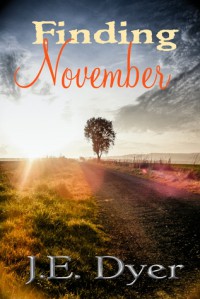Rod Raglin
This blog will touch on the experiences I have as a writer (not to be mistaken for my experience as a writer, i.e. how many books I've written, etc); the pleasure and the pain, the joy and the grief, the satisfaction and the frustration, the magic and the reality - have I left anything out, oh yeah, the rejection, rejection and more rejection, the humiliation and the embarrassment, the jealousy and the resentment - that pretty much covers it, except for why I do it which perhaps I'll realize along the way. Are you totally confused? Good, let's begin.
Finding November lost in lack of plot focus, amateurish writing

“Thank you, Joshua Dyer, for writing this book. I appreciate your commitment and the time you put into this worthy endeavor.
Sarah Daniels is a teenage girl living on the edge of poverty with her single-parent mother. The story begins with a regular day at high school until Sarah and her friends witness a husky senior jock type harassing a frail black girl on her way to class.
Okay, the story’s about bullying and racial prejudice.
Suddenly, Sarah collapses in the lunchroom and is taken to the hospital. After some tests the doctors say she’s had a seizure, but they don’t know the cause and she’s released.
Is the story now about Sarah’s medical challenges?
Back at home Sarah’s mother flies into a rage, throws a plate at her and a chip cuts her face.
Maybe the story’s about child abuse?
The reader discovers Sarah is a talented baker and is making money selling her cookies at the local restaurant.
It’s a rags to riches tale, right?
Then, when Sarah’s great aunt dies she inherits a journal written by her great uncle November who disappeared years ago.
Is the story about finding Uncle November? Ah hah!
For three chapters and fourteen pages the reader doesn’t know what the story is about? Usually within the first few pages, or at least the first chapter, there is an inciting incident that starts the story and establishes the goal, motivation and conflict of the protagonist.
Chapter 4 is the great aunt’s funeral and introduces a whole bunch of new characters who will likely not be heard of again. It is also weighted down with family history, which, more or less, is repeated in the next chapter when November, called Noah, describes the family splitting up in his journal Sarah now has in her possession.
Now the story switches back and forth between the past as told from Noah’s point of view, and Sarah’s present.
But Dyer has chosen not to have Sarah comment on the journal and the relevance to her life as she reads it but instead switch to the first person and the reader experiences Noah’s life as it is happening.
I had to now consider if this story was about Sarah or Noah?
I imagine at some point Sarah and Noah’s stories will converge but I couldn’t wait for that to happen.
The lack of plot focus and the inexperienced writing made it a chore to continue and I abandoned it at Chapter 8.
Don’t rush to publish. As authors we love our stories but believe me they are never as good as you think they are or as they can be.
If you can’t afford to engage the services of a professional, dispassionate editor, and who can, do the next best thing, recruit a stable of arm’s length beta readers or even an objective critique group. By objective I mean strangers – nobody who is in a position of conflict of interest and that would include your family and friends.
I’m sure Finding November is a good story but inspiration is only a very small part of being a novelist. The rest is craft, which can be learned, but like anything else to get good at it you have to practice, and practice, and practice…
I downloaded this book free from Smashwords as part of an ongoing commitment to review new, self-published authors.



